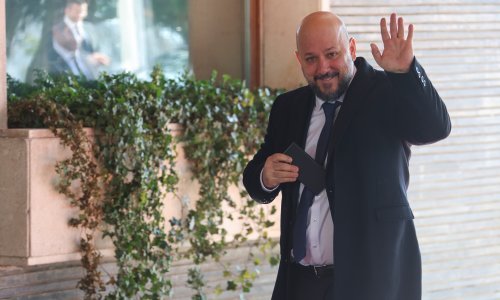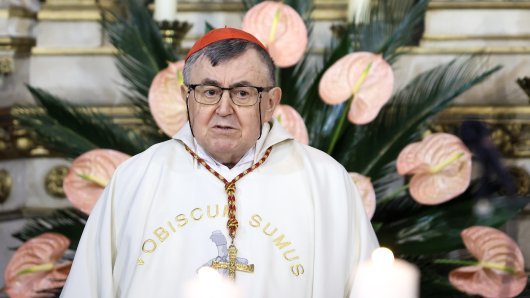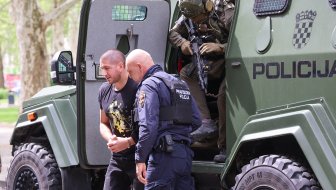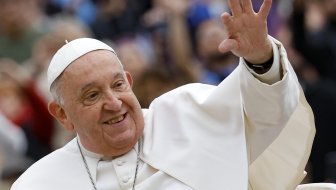A wreath-laying ceremony was held at the Plitvice Lakes on Sunday to commemorate the 22nd anniversary of the military operation Plitvice in which 22-year-old Croatian policeman Josip Jovic had been killed as the first victim of the 1991-1995 Homeland War.
Nine more members of special police and anti-terrorist units were wounded in an ambush by Serb insurgents on March 31, 1991.
After high-level delegations and Jovic's family laid their wreaths, the presidential envoy Sinisa Tatalovic addressed the ceremony, conveying apologies from President Ivo Josipovic for being unable to attend. This prompted about a hundred veterans to retreat about 20 metres away from the ceremony site in protest and not to listen to delegates' speeches.
Tatalovic said that Operation Plitvice was successful even though Josip Jovic laid down his life and that the entire Homeland War was successful because Croatia's freedom was defended. "Twenty-two years on we can say that this sacrifice was for a higher cause, for our present and our future," he said.
Interior Minister Ranko Ostojic told the veterans who refused to listen to the speeches that they were the ones who won the victory in the war. "I am here above any politics to pay tribute to Josip Jovic and that's what I expect from you too. I never booed my commander in chief, Franjo Tudjman," he said.
Milorad Batinic, deputy speaker of Parliament, said that Operation Plitvice, although successful, was a sign that the struggle for freedom would be hard and soaked in blood. He said that Josip Jovic and thousands of other people who had died defending their country were heroes who sacrificed themselves for Croatia's independence and its future generations.
The operation's commander, Josip Lucic, criticised the national broadcaster HRT for dedicating more airtime to programmes about the Second World War than to the causes and consequences of the Homeland War. He called on the state authorities to stop accusing war veterans and asked them why none of the many seaside vacation centres formerly used by the army had been converted into sanatoriums for veterans. He noted that 1,500 veterans had committed suicide since the war ended in 1995.
Zeljko Dilber, one of the veterans who stepped away from the ceremony, said it was a spontaneous reaction to the fact that the President of the Republic had not come in person for this anniversary. Josip Klemm said that in cases like this the veterans could be represented only by Vinko Kovacic, presidential adviser on veterans' affairs, or by generals.
Mihajlo Hrastov, a former policeman from Karlovac who has been sentenced to four years in prison, pending appeal, for the murder of 13 Serb soldiers on the Korana bridge in 1991, said they had turned their backs on the presidential adviser Tatalovic because "he is a Serb, a Chetnik, and shouldn't have come."




































